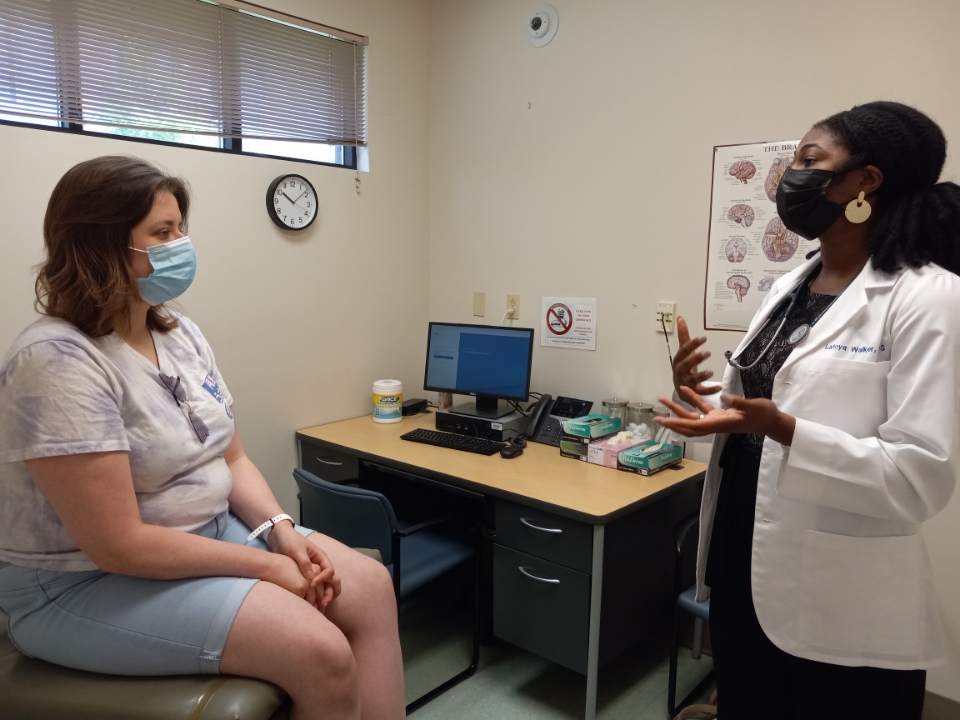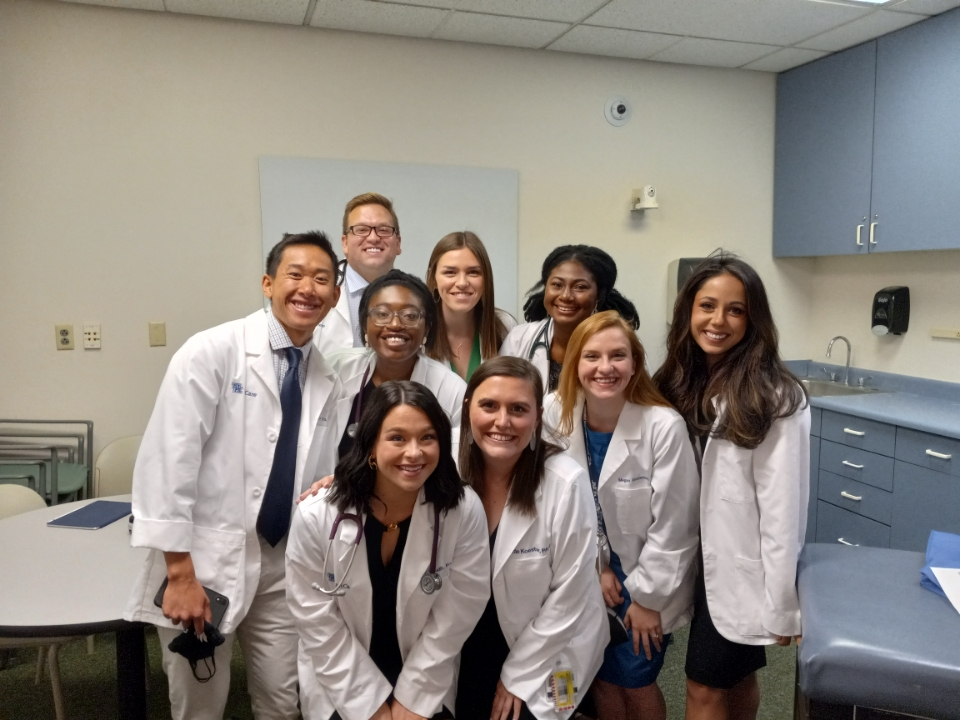PA Simulation Experience Prepares Students for Real Life
Aug 4, 2022
By Ryan Clark
CHS Communications Director
Maggie Casteel Smith’s patient had trouble sleeping.
Upon further questioning, she discovered the patient was using marijuana, and apparently had a history of abuse as a child. What to do?
“In my plan, I referred her to psychiatry to obtain counseling for her past trauma,” Casteel Smith said. “As a provider, we must get to the true root of a patient’s problem, and in this case, it seems as though the root of my patient’s trouble sleeping was actually childhood trauma.”
While the plan was spot on, none of this was real at all.

It was a simulation, where UK Physician Assistant Studies classes of ’22 and ’23 participated in substance use disorder (SUD) standardized patient encounters. Faculty wrote clinical case vignettes that standardized patients portrayed. Students were provided 30 minutes to complete a history and a focused physical exam, develop diagnoses, and to provide patient education about treatment.
“I think the goal of the patient simulation was to understand that a patient with substance use disorder may initially present with a seemingly unrelated complaint,” Casteel Smith said. “If I had not questioned her further, she probably would not have told me about her trauma, and my plan for her would have been different. I think this patient simulation also showed us, as students, that patients may begin using substances because they are trying to relieve themselves of a problem. There is a lot of stigmas about people with substance use disorder in that it’s assumed they are all doing it ‘for fun,’ when really, they are just trying to feel better.”
These standardized patient encounters were budgeted into a Substance Abuse and Mental Health Services Administration (SAMHSA) grant to provide a safe place for students to practice conducting a thorough substance use history, said Cheryl Vanderford, MPAS, PA-C, assistant professor in Physician Assistant Studies and Principal Investigator for the grant.
“Having confidence in these skills will benefit students in any clinical rotation,” Vanderford said. “Students will have the opportunity on clinical rotations to care for patients with substance use disorders on every rotation, regardless of field, as patients with SUD need women’s health, surgery, emergency medicine, internal medicine, family medicine, etc. care, too.”
The patients were impressed.

From a survey comment by a standardized patient: “The PA students were compassionate and did a good job finding out what was wrong with the patient and trying to give them next steps toward treatment that would help (them) improve.”
Another said they were “in a safe, confidential environment, and that students wanted to get me treatment and were invested in getting me back to work.”
Emily Nole, from the Class of 2023, said she learned a lot about herself when it comes to patient encounters.
“It also brought me so much joy because even though it was a simulation, for the first time I felt like I was really getting to step into my dreams of getting to see what being a provider will be like and how I will get the privilege of helping people when they are at their lowest,” she said.
“The SUD simulation was an excellent opportunity to get a feel for what a SUD patient visit could be like,” said Courtney Marshall, Class of 2023. “Applying the knowledge we have been studying all year in a more real-life setting was extremely beneficial. In the simulation, we were able to sympathize with our patient and provide them with resources and treatment plans that would be most beneficial for them. It certainly helped me overcome some of the nervousness that comes with transitioning from the classroom to the clinical setting. The experience with the actors gave me more confidence it what I’m doing and learning. It made me look forward to helping others in real life practice.”
It was exactly what professors wanted the students to get out of the experience.
“What do I love about simulations?” Vanderford asked. “I love watching the students’ confidence grow. What better way to learn than to simulate a real environment?”